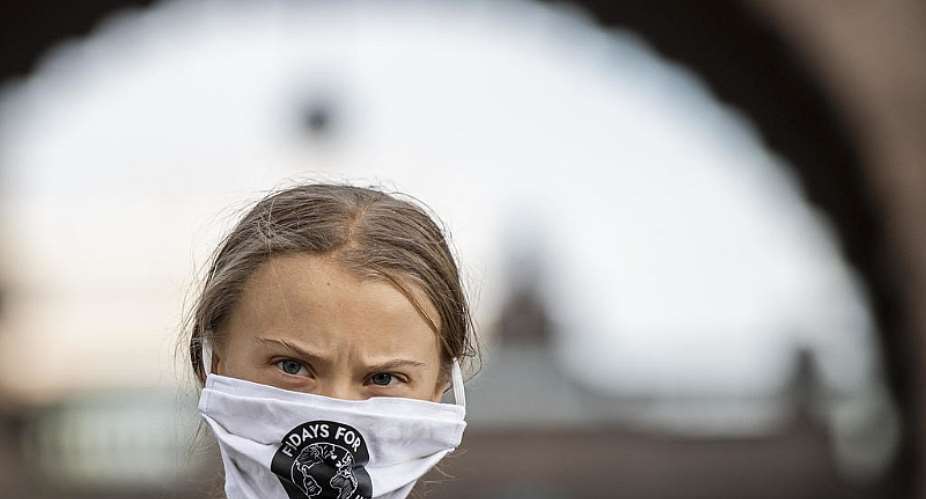European Union agriculture ministers have agreed to overhaul the trading bloc's farm policy, with tighter rules to protect the environment and fight climate change. Environmentalists, including Greta Thunberg, say they are not impressed.
"After a long struggle, we have reached a crucial agreement," German Agriculture Minister Julia Klockner said after two days of talks in Luxembourg.
Klockner added that there was a "good balance" in the restructured Common Agriculture Policy (CAP) that is "greener, fairer and simpler".
Individual member states and the European Parliament must now agree on the rules which will come into effect in January 2023.
The European commissioner for agriculture Janusz Wojciechowski said the deal was "a good starting point" for these negotiations, suggesting a "good compromise" could be reached.
With a budget of 387 billion euros over seven years, the CAP accounts for the biggest share of EU spending.
Thunberg slams deal as a surrender
Leading climate change activist Greta Thunberg however dismissed the deal as a sell-out, which "basically means surrender on climate and environment".
"No awareness means no pressure and accountability, so the outcome is no surprise. They just don't care," Thunberg said in a tweeted message.
Financial aid linked to green rules
Under the agreement, all farmers will be forced to respect stricter environmental regulations if they want to benefit from financial aid.
Small farms will be subjected to simple checks "which would reduce the administrative burden, while guaranteeing at the same time their contribution to environmental and climate objectives," it says.
So-called "ecoregimes", a system of incentives to encourage farmers to apply more stringent environmental standards, would also become compulsory.
Each member state will have to devote at least 20 percent of EU direct payments to them, with the goal being for farms to receive additional funds if they go over and above the basic norms on climate and the environment.
The issue sparked friction as many eastern European countries fear losing European funds if too few farmers participate in environmental programmes.





 Former Kotoko Player George Asare elected SRC President at PUG Law Faculty
Former Kotoko Player George Asare elected SRC President at PUG Law Faculty
 2024 elections: Consider ‘dumsor’ when casting your votes; NPP deserves less — P...
2024 elections: Consider ‘dumsor’ when casting your votes; NPP deserves less — P...
 You have no grounds to call Mahama incompetent; you’ve failed — Prof. Marfo blas...
You have no grounds to call Mahama incompetent; you’ve failed — Prof. Marfo blas...
 2024 elections: NPP creates better policies for people like us; we’ll vote for B...
2024 elections: NPP creates better policies for people like us; we’ll vote for B...
 Don’t exchange your life for wealth; a sparkle of fire can be your end — Gender ...
Don’t exchange your life for wealth; a sparkle of fire can be your end — Gender ...
 Ghana’s newly installed Poland train reportedly involved in accident while on a ...
Ghana’s newly installed Poland train reportedly involved in accident while on a ...
 Chieftaincy disputes: Government imposes 4pm to 7am curfew on Sampa township
Chieftaincy disputes: Government imposes 4pm to 7am curfew on Sampa township
 Franklin Cudjoe fumes at unaccountable wasteful executive living large at the ex...
Franklin Cudjoe fumes at unaccountable wasteful executive living large at the ex...
 I'll 'stoop too low' for votes; I'm never moved by your propaganda — Oquaye Jnr ...
I'll 'stoop too low' for votes; I'm never moved by your propaganda — Oquaye Jnr ...
 Kumasi Thermal Plant commissioning: I pray God opens the eyes of leaders who don...
Kumasi Thermal Plant commissioning: I pray God opens the eyes of leaders who don...
